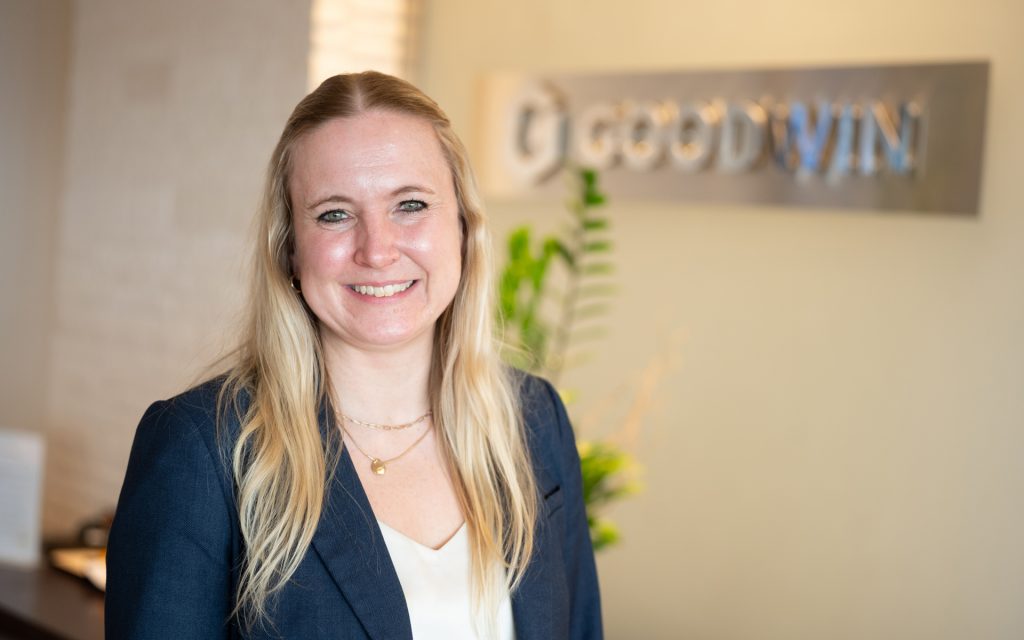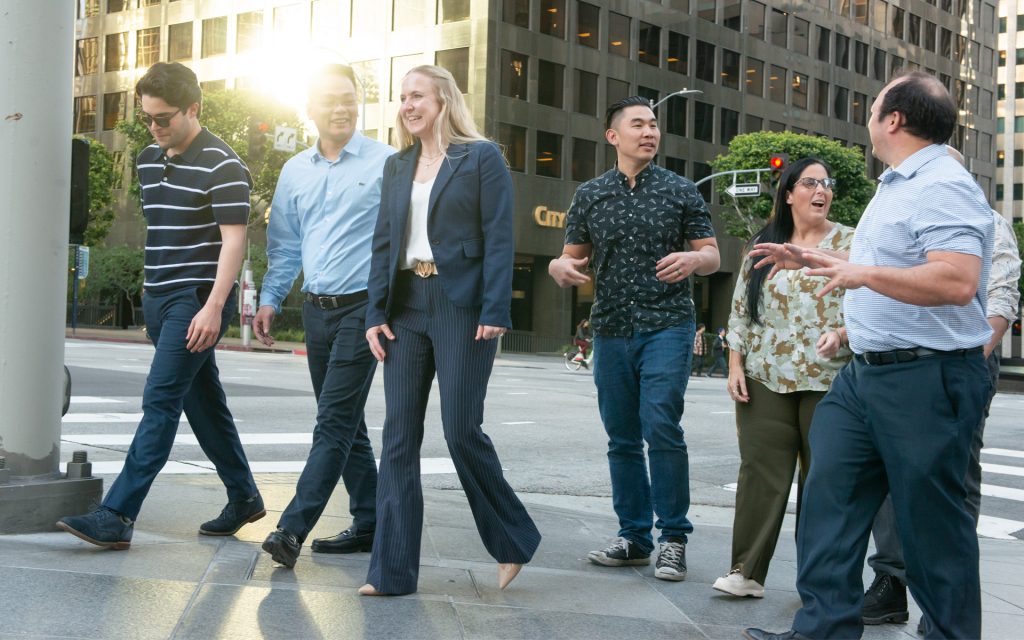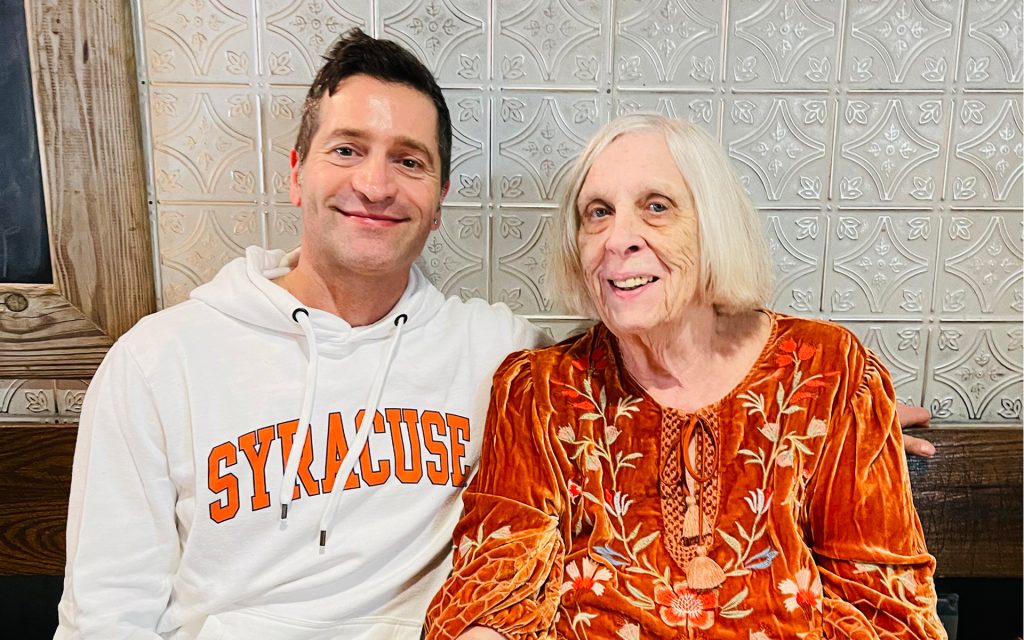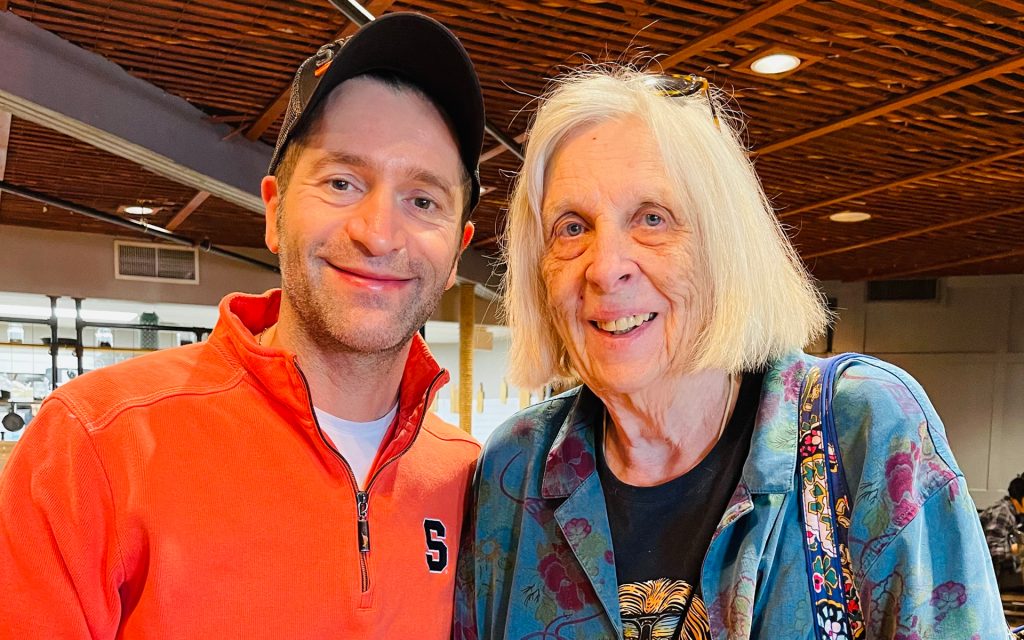
“I’m working with the best of the best, and that makes class discussions so much more diverse and valuable.”
Kathryn Martin L’24
With a background in finance and accounting, Kathryn Martin L’24 was working as a tax manager for a private trust company in 2011 when she started considering law school as a way to advance her career. It was the company’s president who told her that working in the private trust company industry would require a law degree if she wanted to move up the ladder.
Martin was living in Reno, Nevada, with her husband and children, while also caring for her dad and her mother, who has Parkinson’s disease. There was no way she could leave Reno to attend a residential law school. So, she put that idea on hold and instead earned a master’s degree in accounting from the University of Nevada, Reno, and became a CPA.
Seven years ago, Martin moved to another private trust company and again was told that a law degree was essential. A long-time fan of Syracuse Men’s Basketball, she looked into the JDinteractive (JDi) program at Syracuse University College of Law and thought an online program might work for her. “It was the one and only law school I applied to,” she says. “I just felt that I had to go there.”
The JDi program has proven to be a good fit with the demands of Martin’s job. “Time was a concern. I knew law school would be a lot of work, but, like any overachiever, you make it work,” she explains. “It’s not easy, but the flexibility of the program has really allowed me to keep my job, be with my family and go to law school at the same time.”

Aside from the flexibility, Martin has been pleased with the opportunities that the JDi program offers. She finds it interesting to learn about the backgrounds of others in her cohort, most of whom are high-level professionals. “I’m working with the best of the best, and that makes class discussions so much more diverse and valuable,” she explains.
Another advantage has been the variety of speakers who have come into online classes from wherever they are located—something that would not be possible in a residential program. “I took a class on activist investing and corporate governance from Adjunct Professor Jared Landaw, and he brought in very accomplished speakers almost every week to give their perspectives,” Martin says. “Having access to all of these different people from a variety of backgrounds has been completely rewarding.”
Martin has also attended six of the residency programs during her time in the JDi program. Most recently she traveled to Los Angeles for a residency on bankruptcy law with Distinguished Lecturer Richard Levy L’77. She says the highlight of the trip was listening to distinguished alumna and Chair of Syracuse Law’s board of advisors Melanie Gray L’81 talk about her experience as a woman in law and how she’s faced diversity in her career.

“I soaked in everything she said like a sponge,” Martin says, noting she also had the opportunity to attend a bankruptcy hearing and ask questions of three judges afterwards. “It was interesting because a lot of times, people think of bankruptcy as a negative thing, but the judges spoke about how it allows people to take risks and have a safety net to fall back on.”
She’s been to the Syracuse University campus for all the other residencies: notably one on elder law with David M. Levy L’48 Professor of Law Nina Kohn. “This was my favorite residency, particularly because I’ve had to navigate the nursing home system due to my mom’s Parkinson’s disease,” she says.
“…I am grateful to the professors at Syracuse Law who helped me map out my career choices and prepared me for this next step. The Syracuse Law JDi program has been an excellent experience that has allowed me to build on my finance and accounting background by adding critical components of the law to my experience. It has opened a door to an exciting new chapter for me.”
Kathryn Martin L’24
As Martin gets ready to graduate this spring, she is also preparing for a career change from tax director to a tax counsel position, working in tax and estate planning with her current employer.
“As a tax director, I often come into transactions once they are already underway, but having a law degree will allow me to help create strategies to assist our clients from the start,” Martin says. “I am looking forward to this shift in my career, and I am grateful to the professors at Syracuse Law who helped me map out my career choices and prepared me for this next step. The Syracuse Law JDi program has been an excellent experience that has allowed me to build on my finance and accounting background by adding critical components of the law to my experience. It has opened a door to an exciting new chapter for me.”



